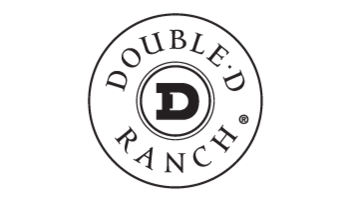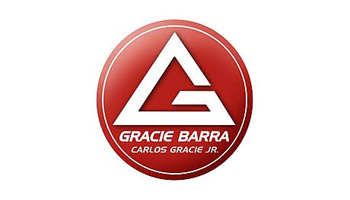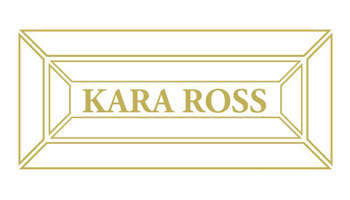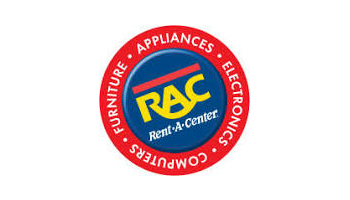Although it’s not necessarily a bad thing, not everyone wants to look an amateur when approaching a potential or established client. This isn’t to say that you should completely fake your status and knowledge, but you definitely shouldn’t come off as someone who knows less about your business than your client.
Admitting that you “don’t know” certain areas or aspects of your field (these should be minor) is not only expected, but in many cases appreciated by your customer base. We’re all human after all. However, you don’t want “I don’t know” or uncertainty to plague nearly every conversation you have… And unless you honestly don’t know, then that’s a phrase that shouldn’t come up in your conversation. And if it does, make sure you figure out the answer yourself quickly.
Being an amateur isn’t a bad thing. And there are definitely tips you can follow to seriously up your game.
There are also those who know their way around their business but that experience simply isn’t coming across for whatever reason. Perhaps you’ve got a solid 20 years invested in your business but for some reason, you simply can’t sell that info to your clients. Maybe you lack confidence or you’re not using the right dialect. Who knows?
Well, if you follow the tips we’ve listed below then you’ll come off as an expert in no time regardless of experience:
#1 Confidence sells products

You’ve probably heard this or something similar a million times, but confidence really can make or break a deal. Consider this:
You’re interested in starting a blog but you don’t have the time to manage it yourself. So, you decide to hire a writer to take care of it for you. You put your “now hiring” sign is out and two writers are quick to slide into your email box.
*I should also mention that these are two very real emails that a friend of mine received when looking for someone to manage their blog. I’ve changed a little bit of the details as well as edited out names but the gist is there.
Writer A:“Hi Business Owner! My name is Writer A and I’ve got a little bit of experience as a content writer. I’ve also managed a blog before. However, this is something that I’m extremely passionate about! I also enjoy a challenge so I won’t shy away from unfamiliar projects! I know I’d be a great fit for your business.”
Writer B:“Hi Business Owner, my name is Writer B. I’ve got ten years experience as a content writer. I saw that you’re looking for someone to manage your blog. I don’t normally manage blogs, but I think I’m up for the task. Your content is also a bit out of my comfort zone. I don’t think it’ll be a problem, but on the off chance that it is maybe we could discuss other topics. Thanks for your time.”
You’re probably hiring Writer A, right? Even though he or she has less experience than Writer B, they come off far more confident in their abilities. Writer B’s repeated use of I think is pretty off-putting. Writer B also doesn’t want to leave their comfort zone; they even go as far as to suggest changing the blog topics to something they’re more comfortable with. Yikes! Even though Writer A lacks the experience that Writer B has, they’re far more confident in their skills.
So learn from Writer B’s mistakes and erase “I think” from your vocabulary when it comes to your skills. You don’t think your products are great for your clients, you know they’re a perfect fit. By coming off as confident in both your skills and your business, you’ll attract far more customers.
There are also plenty of YouTube videos and daily affirmations you can check out to help boost your self-confidence. This oneis one of my personal favorites. For daily affirmations, check out this linkfor 50 phrases you can start practicing with.
#2 Shh, it’s a secret

One of the quickest ways to come off as an expert is to hide your lack of experience. Many amateurs are quick to tell their clients about their lack of experience. While it worked out in Writer A’s favor, it won’t always work out for you; especially as a business owner. Sure, people appreciate honesty but “I don’t have much experience in this field” shouldn’t be your opening line… In fact, it shouldn’t be a line you use at all unless you’re asked.
Most of the time, this info comes spilling out because the person is worried that they’ll find out regardless and be far more upset. After all, the longer you hide that broken vase from your mother the angrier she’s going to get. You also know she’s going to find out so it’s better to come forward early. This shouldn’t be your business motto. Most of the time, your clients aren’t going to be able to tell you lack experience.
Going back to Writer A’s lack of experience, what should they have said instead? Well, the best thing they could have done in that situation was to not say anything at all.Instead of being forthcoming with the fact that they’re new to this field, they should have deleted that line and just moved forward.
This should also be your MO. Once again, unless you’re being asked outright keep your lack of experience to yourself.
#3 Know your place

Professionals as well as true experts know their place in the market. They’re also aware that they don’t offer everything. Many amateurs will try to be jack of all trades and wind up being unable to offer anything in particular. You know the saying: “jack of all trades, master of none.” So find something that you’re good at, and stick to it.
In other words, you don’t need to be a website designer who’s also a marketer, SEO specialist, and photography expert. Being a website designer is good enough. And if you’re trying to add more to your list, you can easily end up as the “master of none.” Diverting your attention and time to too many areas can leave you rusty at best in regards to your main focus. So while it might be incredibly tempting to add other areas to your primary focus, a true expert will be confident in their field. You don’t need the SEO or marketing skills to sell your products; you just need to be a great website designer.
And remember, it’s okay if your clients seek other services outside your field/company. An expert will allow clients to look around and remain confident that the customer will return when their skills are needed.
TLDR; You don’t need to be aone-stop shop in order to be successful; you just need to be good at what you do.
#4 Be YOU

Those that are good at what they do are aware of that fact and don’t feel the keep to keep pointing it out. Sure, it’s nice to let your customer know that you have decades of experience in this field, but that shouldn’t be the only thing they garner from interactions with you. You also shouldn’t inundate them with that knowledge. If you really are good at what you do, then it’ll show through without you having to oversaturate your client.
So instead of reminding your customer base that you have X amount of years of experience, let your personality shine through. Let them see who you are as a person and set yourself apart from other businesses that are similar to yours by being yourself. At the end of the day, your client has to work and deal with you so be someone they’re comfortable with. You don’t have to be “all about business 24/7”; let the funny side of your personality show through. You’ll attract (and keep) far more customers this way.
So let your personality shine through and develop a rapport with your prospective client.
Also, instead of focusing on what “I the business owner” can do for the client, talk about what “we as a team” can do together to help the client reach their goals. This speaks volumes of confidence and establishes that rapport that’s essential to your business’s growth and success. Plus, it shows confidence and as you should know by now, that’s also incredibly important; after all it is #1 on this list.
#5 Don’t oversell

Admittedly, overselling is one of the biggest traps that we fall into.It’s easy to do (and hard not to do) and it’s awful for your business.
Maybe you’re not getting the feedback that you hoped for, so you decide to push a little bit more. You send out surveys, questionnaires, and begin bugging your clients for feedback. While it might not seem like a big deal to you, it comes off as amateurish and desperate to your clients. Think of the times you’ve been at the mall and you pass by one of those kiosks in the middle of the walkway. Someone almost always jumps right out in front of you or thrusts a sample card in your face. “Try our products! They’re great!” When you say no thank you, they continue the hustle. “Can I ask why you’re not interested?” “Why don’t you just give this a chance?” Etc. Etc.
That’s what your clients feel when you bombard them with emails and messages wanting feedback.
But what about overselling or offering discounts? Sure, offering discounts can be a great way to get clients in the door and persuade those who previously walked away to come back. But it also gives the wrong impression of your company. You start looking desperate for business and there are those clients who will take advantage of that knowledge. If you offered them 10% off your products, who’s to say you won’t offer them more if they just push a little bit or threaten to walk away? Know your worth.
So be aware of what you have to offer. Make sure your clients are aware of that from the beginning, but leave the rest up to your clients. After all, they should want you not the other way around.
#6 Quality control

While money is definitely one of the key factors in your work, you should never let it dictate how you deal with clients or the quality of the services you have to offer. True experts know that providing quality work is priority number one. They also know that quality work will automatically entitle them to good rates.
If your client feels like you’re just in the business for a check, then you can kiss them goodbye. “But we’re all in it for the money. I realize that when I purchase products!” You’re right, but think of it this way:
You’re looking for a groomer for your new dog. Two advertisements pop up for groomers in your area.
The first one reads:“Local groomer available for hire. I have been grooming for seven years now. I have experience with a lot of different breeds and personalities. My rates are a bit higher than other groomers, but I also come with more experience. Please email me for more information.”
The second one reads:“Local groomer available for hire. I have been in the business of pampering pooches for two years! In my experience, I’ve never met a dog that I didn’t absolutely love! I’ve also got experience with all kinds of breeds as well as personalities so even if your dog hates the groomer, I bet they’ll love me! Email me for more information so I can pet I mean groom your fur baby!”
Who are you going to hire? Yeah, same. We’re hiring number two! He or she comes off as far more interested in your dog than your check so even though they don’t have as much experience as the first groomer, we’re still picking them. Plus, more of their personality shined through in the ad.
#7 Don’t be ashamed

Alright after reading #2, you might have the following question burning in the back of your mind:
“But what if they ask about my experience?”
Well, once again be honest. Your MO should be keeping your lack of experience to yourself, but if a client asks then you should be upfront and honest with them. Not having a ton of experience isn’t necessarily a bad thing, but lying about your experience is. So if you’re tempted to start fudging numbers here, don’t. Why? Well:
1. It probably won’t be hard for them to figure out you’re lying. Then you’ve damaged your rapport.
2. If the customer believes you have 10 years of experience when you really have 6 months and you make a mistake, they’ll be less likely to forgive you. After all, with 10 years of experience, you shouldn’t be making these kinds of mistakes.
3. They’ll expect more out of you and your business than you might be capable of. At 10 years of experience, you should be able to solve any number of problems that arise. If you’re only 6 months into your journey, you probably can’t.
Also, there are plenty of good things about being new to the game. You probably have fresh ideas for starters and that’s going to appeal to a lot of customers. You also aren’t “burnt out” on your field so you’re more likely to be engaging, do your best, and have fun with the whole thing.
So as long as you apply the rest of the tips, you’ll do fine. J
Want a few more tricks for your arsenal? Check out this link


















